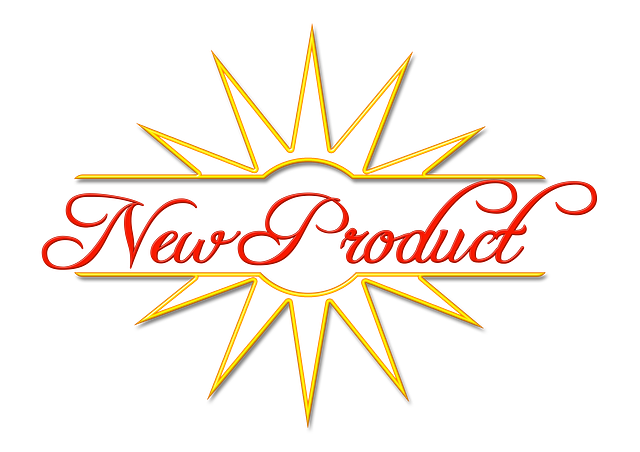Product specification sheets require precise translations for UK market success. Accurate translations avoid misunderstandings, misaligned expectations, and legal issues. Professional translators with industry expertise in both source and target languages are essential. Best practices include thorough research, consistent terminology, and cross-checking. Combining machine translation with human review enhances accuracy and efficiency. Partnering with reputable providers guarantees high-quality, reliable translations for UK product specification sheets, fostering effective global communication.
In today’s global market, accurate translations of product specifications are vital for success in the UK. With competition fierce, ensuring your product specification sheets (PSS) are correctly translated can make or break sales. This article delves into the critical importance of precise UK PSS translations, exploring common challenges and best practices. We’ll uncover strategies to achieve high quality, the value of native language experts, and methods for measuring accuracy and user satisfaction in translation services tailored for the UK market.
- Understanding the Importance of Accurate Product Spec Translations
- Common Challenges in UK Market Translation
- Ensuring Quality: Best Practices for Translation Services
- The Role of Native Language Experts
- Measuring Translation Accuracy and User Satisfaction
Understanding the Importance of Accurate Product Spec Translations

Product specification sheets are critical documents that detail a product’s features, functions, and technical requirements. For businesses operating in the UK or looking to expand their market there, ensuring these spec sheets are accurately translated is paramount. Inaccurate translations can lead to misunderstandings, misaligned expectations, and even legal issues.
Translation services for UK product specification sheets must go beyond mere word-for-word substitutions. They need to capture the nuances of technical jargon, industry-specific terminology, and cultural references to deliver a precise and comprehensive translation that aligns with the source document. This involves engaging professional translators with expertise in both the source and target languages who understand the intricacies of product specifications, thereby fostering seamless communication between manufacturers, suppliers, and customers across linguistic barriers.
Common Challenges in UK Market Translation

Translation services for UK product specification sheets face several common challenges due to the unique nuances and requirements of the British market. One significant hurdle is adapting to regional variations in language, terminology, and even subtle cultural differences across different parts of the UK. For instance, what might be considered a standard term in one region could be altogether unfamiliar in another, necessitating a detailed understanding of local dialects and jargon.
Moreover, product specification sheets often include technical terms and specialized vocabulary that require precise and accurate translations. Inaccurate or inappropriate translation can lead to misunderstandings, miscommunication, and even legal issues. Therefore, professional translation services must employ skilled translators who not only have a deep grasp of the source language but also possess expertise in the relevant industry to ensure the accuracy and relevance of the translated content for the UK market.
Ensuring Quality: Best Practices for Translation Services

Ensuring quality in translation services, especially for technical documents like UK product specification sheets, requires a meticulous approach. It involves more than just word-for-word substitution; it entails understanding the context, industry jargon, and cultural nuances to deliver precise and meaningful translations. Professional translators should adhere to best practices such as extensive research on the subject matter, consistent terminology usage across projects, and cross-checking with native speakers or domain experts to avoid errors.
Additionally, utilizing advanced translation tools, like machine translation with human review, can significantly enhance accuracy and efficiency. These tools, combined with thorough quality assurance checks, ensure that product specification sheets are translated accurately, preserving the integrity of technical details crucial for international markets. For businesses seeking reliable translation services for their UK product specifications, partnering with established providers who prioritize quality is paramount to ensuring global comprehension without compromising on technical accuracy.
The Role of Native Language Experts

When it comes to translating UK product specification sheets, accuracy is paramount. While machine translation tools can offer a starting point, they often struggle with nuances in language and industry-specific terminology. This is where native language experts play a crucial role. These professionals not only possess a deep understanding of the source and target languages but also have expertise in the specific domain of product specifications.
Native experts can ensure that technical jargon is accurately conveyed, avoiding potential misunderstandings. They also help capture cultural subtleties, ensuring the translated document resonates with the intended audience. For translation services focused on UK product specification sheets, leveraging native language expertise is essential to deliver precise and reliable results, thereby enhancing communication effectiveness in global markets.
Measuring Translation Accuracy and User Satisfaction

Measuring translation accuracy in the context of UK product specification sheets is a critical aspect of ensuring quality and user satisfaction. Professional translation services employ various methods to evaluate the precision of their work. One common approach is to use automated tools, such as machine translation engines, that can quickly assess grammatical correctness and keyword consistency. However, these tools often lack the contextual understanding needed for technical documents. Therefore, human review remains essential.
Expert translators carefully compare the translated sheets with the original content, checking for not only linguistic accuracy but also the preservation of technical terms and product details. User satisfaction is equally important; feedback from clients and end-users helps refine the translation process. By combining automated analysis and human expertise, translation services can deliver highly accurate UK product specification sheet translations that meet industry standards and user expectations.
When it comes to UK product spec translations, accuracy is paramount. By understanding common challenges, implementing best practices, leveraging native language expertise, and measuring user satisfaction, translation services can ensure high-quality results for product specification sheets. Investing in these strategies is vital for effective communication and market success within the UK. Translation services that prioritize precision and usability ultimately facilitate smoother business operations and enhance customer experiences.
